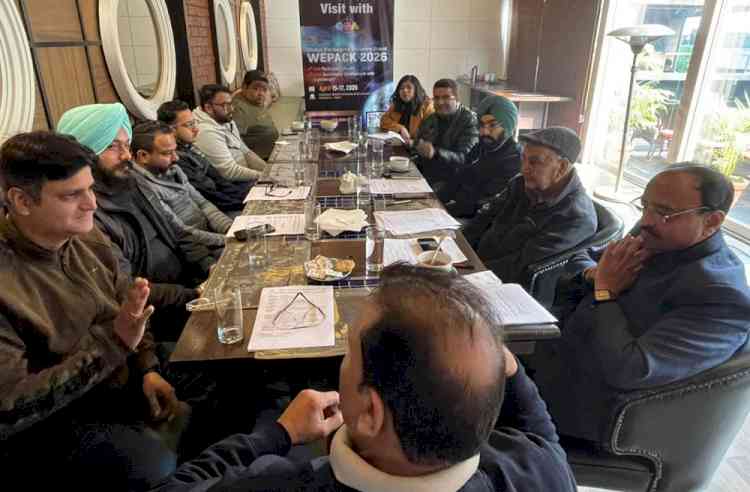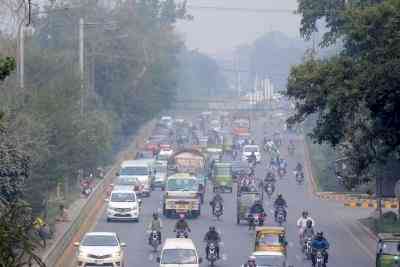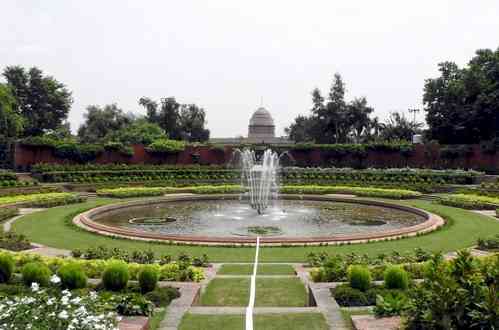Punjab CM lauds farmers for increased crop diversification while successful kharif sowing amid covid pandemic
Underlines need to diversify further to save precious water resource and boost farmers’ income

Chandigarh: Punjab Chief Minister Captain Amarinder Singh on Monday lauded the state’s farmers for successful diversification of nearly 2.28 lakh hectares area out of the traditional paddy cultivation cycle in the current Kharif sowing season, even while ensuring successful completion of crop acreage in terms of sowing of the Kharif 2020 crop.
The success of the farmers in their diversification efforts, even amid the Covid pandemic, has also been recognised by the Ministry of Agriculture, Cooperation and Farmer’s Welfare, Government of India, which documented the same in a Press Information Bureau release of 31st July 2020, the Chief Minister pointed out.
The diversification across 2.28 lakh hectares will help save nearly 2.7 billion cubic meters of ground water and about Rs. 200 crores power consumption in the state, thus supporting the Punjab government’s efforts to preserve the scarce water resources, said Captain Amarinder.
While reviewing the sowing activities in the State here on Monday, the Chief Minister said that despite migratory labour shortage in the ongoing kharif season, the state has not only completed its kharif sowing but has also continued to fulfil its objective of diversification even in these difficult times.
The Chief Minister directed the ACS Development to accord top priority to diversification of agriculture, particularly in the light of the diminishing returns on farmer’s produce. The returns for farmers have been decreasing due to squeezed margins on account of almost stagnated MSP and continuously increasing costs of agricultural inputs. Farmers should be motivated to go for crop diversification in a big way by opting for crops like sugarcane, basmati, pulses, fruits & vegetables, he said, adding that this would make the state’s agrarian economy more financially sustainable and economically viable.
ACS Development Anirudh Tiwari informed the Chief Minister that Basmati sowing has been completed across 6.50 lakh hectares, against 6.30 lakh hectares last year. It is expected that acreage under Basmati will touch about 6.75 to 7.0 lakh hectares in Punjab this year.
The state government’s concerted push to use DSR technology is expected to save both ground water and power consumption, along with the natural resources of Punjab, said Tiwari, adding that around 5.50 lakh hectares of Paddy sowing had been undertaken this year through DSR. This, he said, could ultimately lead to achievement of the goal of sustainable agriculture that conserves natural resources and improves farmers’ incomes by cutting down on input costs.
The ACS informed the meeting that Cotton cultivation has been carried out across 5.01 lakh hectares, which is 1.09 lakh hectares more compared to previous year acreage of 3.92 lakh hectares. Last year, the state recorded its highest cotton productivity of 806 Kg lint per hectare.
Acreage under Maize too has seen an increase of 0.83 lakh hectares from the previous year. Last year, Maize was sown in 1.60 lakh hectares in comparison to 2.43 lakh hectares for the current season. Notably, Cotton and Maize crops have very good water saving potential for the state. Similarly, the state has achieved an increase of 5000 hectares under pulses cultivation and 1000 hectares under Sugarcane cultivation.


 cityairnews
cityairnews 










